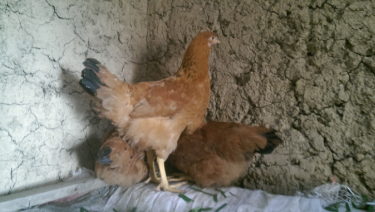
Through a needs assessment, Patrick found that community members noted that they experienced malnutrition and a consistent lack of economic opportunity. Compounded by economic insecurity, 70% of the community found it difficult to pay for medical insurance, and 30% of households reported failure to pay for their children’s education or school meals. To ameliorate these challenges, Patrick, alongside community members, initiated the Small-scale Poultry Farming Project, which included the construction of Kitchen Gardens. Community members erected Kitchen Gardens to decrease the malnutrition rates through increased access to the vegetables and fruits necessary for a balanced diet. The poultry farm assistance went beyond simply supplying hens and materials, as the community helped build chicken coops and received flock caring technique training. Additionally, to ensure the longevity of this program, the project offered financial literacy education. After the training sessions and coop and Kitchen Garden construction, the community bought chickens and vaccinated them before settling them into their coops with their caregivers.
This project excited the community because close access to fairly-priced eggs allows them to fight malnutrition. The beneficiaries now sell eggs with weekly earnings of about 1,680 RWF. Bank account set up training sessions occurred to ensure the sustainability of this project and assist the project beneficiaries’ families with saving. Upon project installation completion, the beneficiaries were capable of caring for their hens and effectively selling eggs. Overall, the village community received this project well, and they greatly appreciated how Patrick empowered them to solve challenges for the betterment of their community.
Project provided financial literacy education.
Community members created kitchen gardens to decrease the malnutrition rates through increased access to the vegetables and fruits necessary for a balanced diet.
The project provides community members with access to fairly priced eggs, as well as the opportunity to make a profit off of the sales.